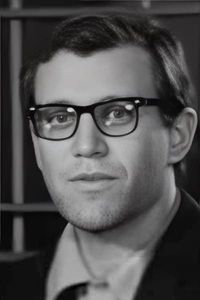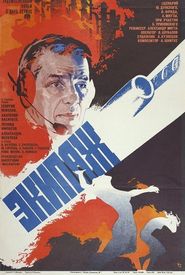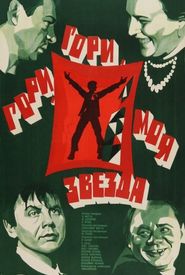Alexander Mitta, a distinguished and celebrated Russian film director and screenwriter, came into the world on March 28, 1933, in the vibrant city of Moscow, a place that would later serve as the backdrop for many of his cinematic creations.
Prior to venturing into the world of filmmaking, Alexander Mitta initially pursued a higher education in engineering, commencing his academic journey in 1955. Despite his academic focus on engineering, Mitta's artistic inclinations and creative impulses soon took center stage, leading him to embark on a career as a cartoonist, where he showcased his talents in various art and magazine publications.
As his passion for the arts continued to grow, Mitta decided to redirect his academic trajectory, opting to pursue a degree in film directing at the esteemed VGIK, a prestigious institution renowned for its rigorous film education programs. It was during his time at VGIK, in 1960, that Mitta successfully completed his studies, laying the foundation for a successful and illustrious career in the world of cinema.
Mitta's groundbreaking approach to narrative storytelling allowed him to venture into uncharted territory, boldly reimagining the classic Western genre of catastrophe movies to mirror the gritty realities of Soviet life. This daring experiment ultimately yielded a cinematic masterpiece, as millions of viewers were captivated by his 1980 film Ekipazh, a testament to his innovative vision and skill as a filmmaker.
Notably, in the year 1983, a remarkable individual took the helm to direct a cinematic masterpiece, titled The Story of the Voyages, which would go on to leave an indelible mark on the world of film. This iconic production boasted an impressive cast, featuring the acclaimed Russian actor Andrey Mironov and the talented Tatyana Aksyuta, whose performances undoubtedly added depth and richness to the narrative.
Mitta's extensive international collaborations led to the production of several notable films, one of which was the Soviet-British political drama, Lost in Siberia, released in 1991. This cinematic masterpiece starred the highly acclaimed and renowned British actor, Anthony Andrews, in a pivotal role. The film's critical acclaim was further solidified when it received a prestigious Golden Globe nomination for Best Foreign Language Film at the 49th annual ceremony, a testament to its exceptional quality and widespread recognition.
Mitta's cinematic journey came to a close in 2013 with the completion of his magnum opus, Chagall-Malevich, a 2014 film that masterfully weaved a narrative tapestry inspired by the life and mystique of renowned artist Marc Chagall, expertly blending elements of folklore and the ballad genre.
Notably, during this same period, Mitta's creative output was further showcased through his work on the television series, Tayozhnyy roman, specifically the 2000 installment, Granitsa, which solidified his reputation as a versatile and accomplished filmmaker.


















